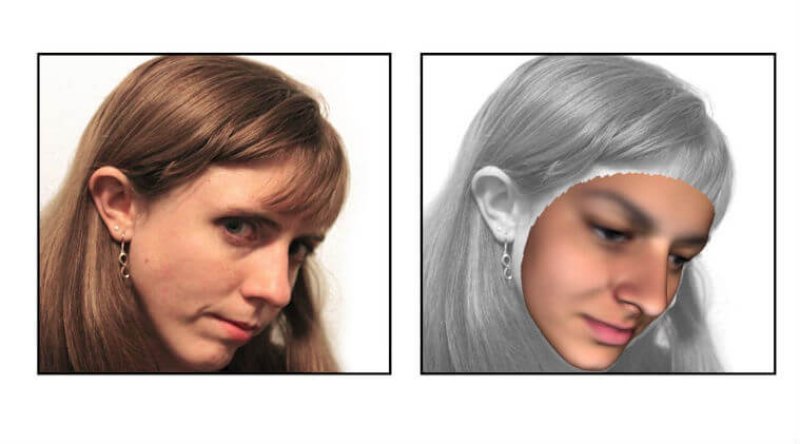If the accuracy ever gets high enough, there would still be some interesting applications (including the privacy problem) of [genetic] facial reconstruction.
…
“In the past, scientists selected specific features, including the distance between the eyes or the width of the mouth. They would then look for a connection between this feature and many genes.” [said researcher Seth Weinberg].
…
The new study took a different approach, letting the traits identify themselves. Lead author, Peter Claes, of KU Leuven, explains, “Our search doesn’t focus on specific traits. My colleagues from Pittsburgh and Penn State each provided a database with 3D images of faces and the corresponding DNA of these people. Each face was automatically subdivided into smaller modules. Next, we examined whether any locations in the DNA matched these modules. This modular division technique made it possible for the first time to check for an unprecedented number of facial features.”
The nose is one of the main identifying features of a face. As the skull contains no trace of it, it’s traditionally been a huge obstacle in facial reconstruction. Out of the fifteen identified genes in this study, seven are linked to the nose. So does this mean we’ll be able to accurately reconstruct facial features from ancient DNA? Someday, but not quite yet.
Editor’s note: Read the full study (behind paywall)
Read full, original post: Are We One Step Closer To Genetic Facial Recognition?































